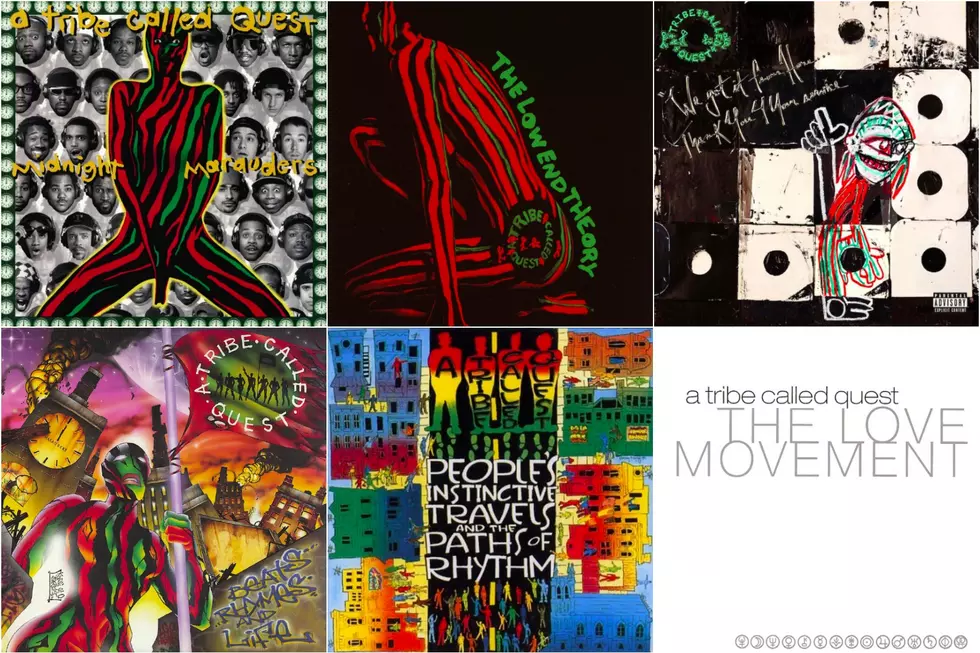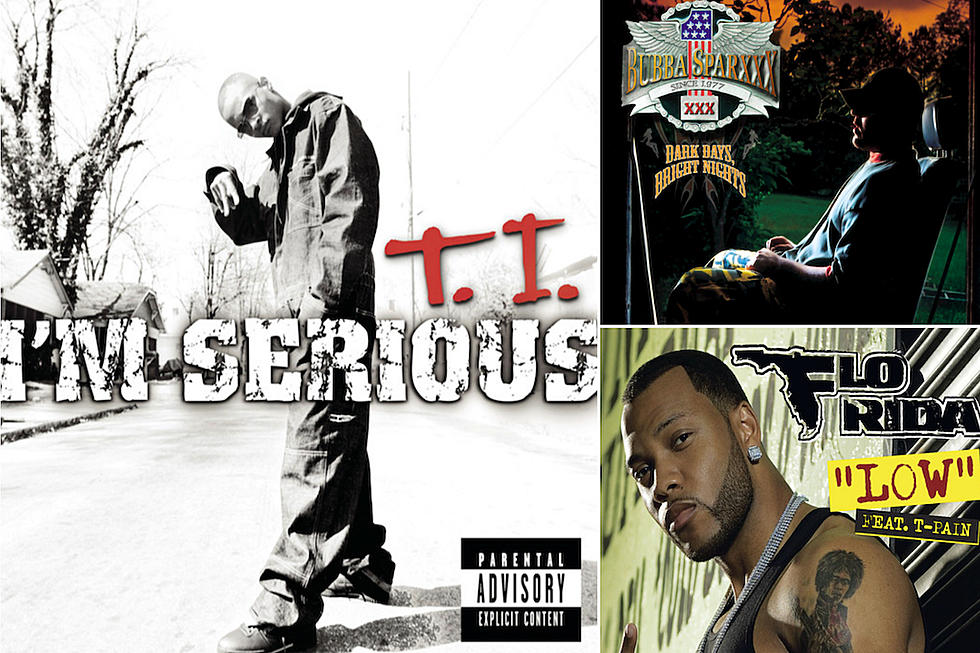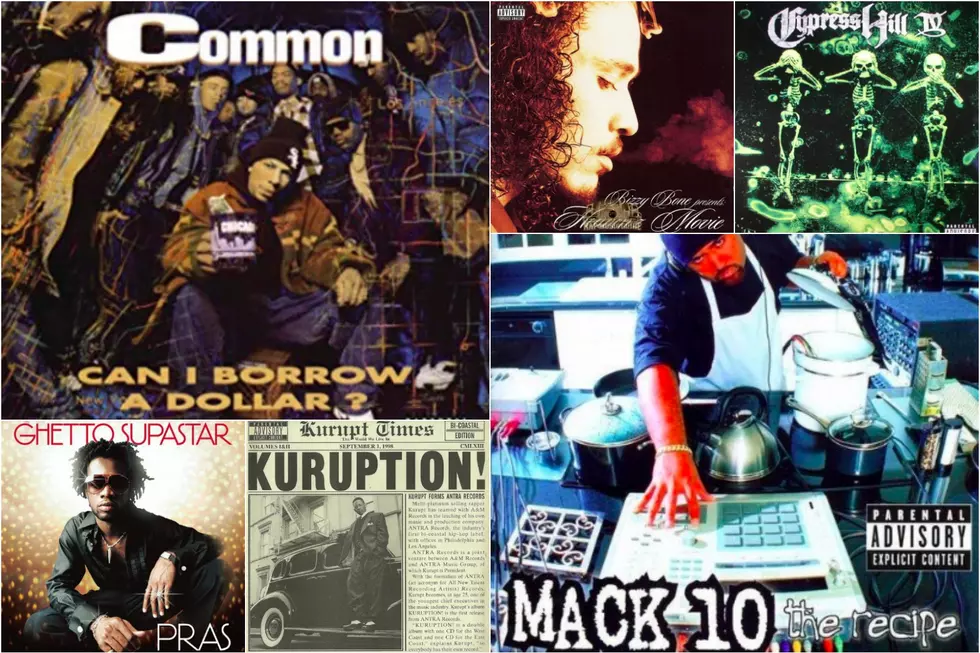
Understanding Hip-Hop’s Beef With the Grammys
 "You think I give a damn about a Grammy?" Eminem spitefully rapped on 2000's 'The Real Slim Shady,' a surprisingly ironic quip from a rapper who's won (and accepted) nine Grammy Awards throughout his career. Such is the contradiction that underscores the uneasy relationship between hip-hop culture and the Grammys.
"You think I give a damn about a Grammy?" Eminem spitefully rapped on 2000's 'The Real Slim Shady,' a surprisingly ironic quip from a rapper who's won (and accepted) nine Grammy Awards throughout his career. Such is the contradiction that underscores the uneasy relationship between hip-hop culture and the Grammys.
The Grammy Awards, first held in 1959 at the Beverly Hilton Hotel in Los Angeles, have long been criticized for its attitude toward hip-hop. The National Academy of Recording Arts and Sciences, who presents the awards each year, recognized hip-hop and rap only after the mainstream success of Run-D.M.C. and the rise of Def Jam in the late '80s. Hip-hop is universally credited with becoming a musical movement in the late '70s and early '80s, but it wasn't until 1989 that the Grammy Awards finally included an appropriate category with the introduction of the Grammy for Best Rap Performance.
From there, NARAS slowly added rap awards into the roster but hasn't deflected criticism by the hip-hop community for having such a limiting and mainstream-minded public attitude toward the culture. In 1991, Geto Boys fired shots at the Grammys on their scathing 'Trophy,' a track that boasts a prominent sample of a voice repeating, "You think I give a f--- about a goddamn Grammy?" Member Willie D expresses his disdain with the ceremony and its pandering toward mainstream tastes, rapping, "One sucka gets nominated five or six damn times/It ain't that he's better than the rest/It's just a damn popularity contest/Or a bribe or a favor." His complaints echoed the sentiments of a culture that felt it long deserved some respect and credibility, and the Grammys acknowledged said gripes by adding a few hip-hop awards into the rap fold.

But it wasn't until Lauryn Hill dropped her seminal debut album, 'The Miseducation of Lauryn Hill,' that a hip-hop album truly broke the mainstream divide -- that is, in terms of Grammy categories -- with Hill becoming the first female solo artist to win five awards in a single night. Her release, which spawned the blockbuster singles 'Doo Wop (That Thing)' and 'Ex-Factor,' became the first hip-hop album to win the top prize, with an Album of the Year trophy ending up on her mantelpiece in 1999.
it took a decade after the Grammy Association first acknowledged the genre that a hip-hop artist finally took the most coveted crown jewel. The same year that Hill won her five golden gramophones, only three hip-hop awards -- Best Rap Solo Performance, Best Rap Performance by a Duo or Group, and Best Rap Album -- existed. Classical music, on the other hand, had long lost its mainstream luster, yet it continued to be honored by NARAS with a healthy 11 awards. While it's relatively unfair to pit two genres against each other in terms of nomination numbers, hip-hop had arguably outgrown a host of genres that have remained the focal point of Grammy honors.
And as a result, the Grammys became more of a novelty for consistently snubbing hip-hop than a lauded taste-making institution. Eminem, who had risen to prominence in the late '90s and early '00s, famously threw lyrical darts at the Grammys on his 2000 single 'The Real Slim Shady,' defiantly refusing to attend the ceremony to claim his awards for Best Rap Solo Performance and Best Rap Album -- two of the three hip-hop citations being given that year.
But like many artists who had grown tired of the Grammys turning a blind eye to hip-hop, he used the 2001 Grammy Awards as a stage for controversy. As a target of the Gay & Lesbian Alliance Against Discrimination for the homophobic content in his lyrics, the blond-haired emcee used his performance during the ceremony to his advantage, inviting the openly gay Elton John to collaborate with him on a live performance of 'Stan' that ended with the two embracing in a defiant hug.

With hip-hop artists using the ceremony to stage stunts instead of treating it with the respect they felt they hadn't been afforded, the Grammy Awards finally caught on to the importance of hip-hop to mainstream society and added a few more rap awards to the mix. In '02, Best Rap/Sung Collaboration was added, and Best Rap Solo Performance was split into male and female categories in '03, with Best Rap Song joining the lineup in '04.
Heading into the 2010 Grammy Awards, it's safe to say that not much has changed with the relationship between the academy and hip-hop culture. Rap is still relegated to five awards (Best Male and Female Rap Solo Performance Awards were combined again in 2005 after Missy Elliott won both years and females began to fade from the scene), and over the past few years, both Kanye West and Lil Wayne seem to be the only rappers taking home the trophies. This year, relatively non-mainstream rappers with quality albums like Common, Q-Tip and Mos Def are honored with nominations, showing that the Grammy nominees are shining a light on quality releases that don't necessarily move mass quantities of units.
But it's the inclusion of acts like Flo Rida and the Lonely Island in rap categories that continue to detract from the credibility of the awards. Hip-hop still hasn't outwardly accepted the Grammys for undercutting its serious attempt to pay respect to the culture, and while rappers graciously attend the ceremony, perform there and graciously accept their awards, there's still a large constituency that couldn't care less. And until the day that NARAS honors rap and hip-hop with its own award show, as it has done with the Latin Grammys, rappers will continue to publicly denounce the awards for everything they've done -- and not done -- for the culture.
More From TheBoombox









